Search
Remove Ads
Advertisement
Summary 
Loading AI-generated summary based on World History Encyclopedia articles ...
Search Results
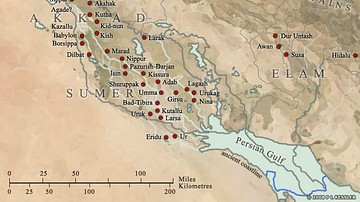
Article
The Atrahasis Epic: The Great Flood & the Meaning of Suffering
The Atrahasis is the Akkadian/Babylonian epic of the Great Flood sent by the gods to destroy human life. Only the good man, Atrahasis (his name translates as `exceedingly wise') was warned of the impending deluge by the god Enki (also known...
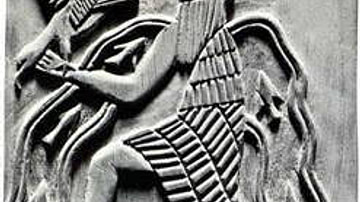
Definition
Enki
Enki (also known as Ea, Enkig, Nudimmud, Ninsiku, Nissiku) was the Sumerian god of wisdom, fresh water, intelligence, trickery and mischief, crafts, magic, exorcism, healing, creation, virility, fertility, and art. Iconography depicts him...

Image
The Atrahasis III Tablet
Old Babylonian clay tablet "Atrahasis III."
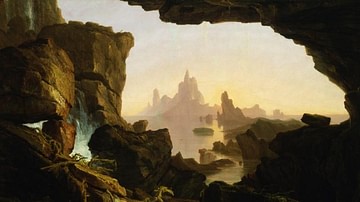
Definition
Eridu Genesis
The Sumerian Flood Story (also known as the Eridu Genesis, The Flood Story, Sumerian Creation Myth, Sumerian Deluge Myth) is the oldest Mesopotamian text relating the tale of the Great Flood which would appear in later works such as the Atrahasis...
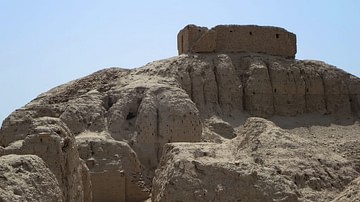
Definition
Enlil
Enlil (also known as Ellil and Nunamnir) was the Sumerian god of the air in the Mesopotamian Pantheon but was more powerful than any other elemental deities and eventually was worshiped as King of the Gods. He is featured in a number of important...
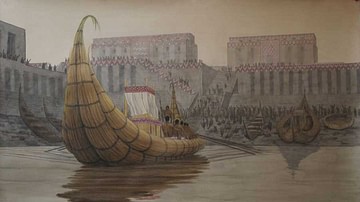
Definition
Eridu
Eridu (present day Abu Shahrein, Iraq) was considered the first city in the world by the ancient Sumerians and is among the most ancient of the ruins from Mesopotamia. Founded in c. 5400 BCE, Eridu was thought to have been created by the...
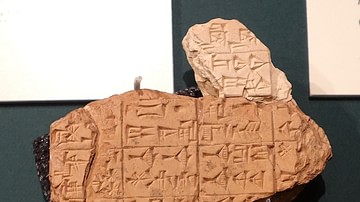
Article
The Instructions of Shuruppag
The Instructions of Shuruppag (c. 2000 BCE) is the most famous work of the genre of Sumerian wisdom literature whose purpose was to encourage proper behavior in conformity with cultural values and standards. It is among the oldest works of...

Definition
Book of the Heavenly Cow
The Book of the Heavenly Cow is an ancient Egyptian text dealing with the rebellion of humanity against the sun god Ra, his destruction of the rebels through the goddess Hathor, the reversal of this decision and Ra's mercy, and his ascent...

Article
The Mesopotamian Pantheon
The gods of the Mesopotamian region were not uniform in name, power, provenance or status in the hierarchy. Mesopotamian culture varied from region to region and, because of this, Marduk should not be regarded as King of the Gods in the same...
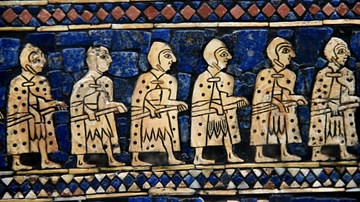
Definition
Sumerians
The Sumerians were the people of southern Mesopotamia whose civilization flourished between c. 4100-1750 BCE. Their name comes from the region which is frequently – and incorrectly – referred to as a “country”. Sumer was never a cohesive...